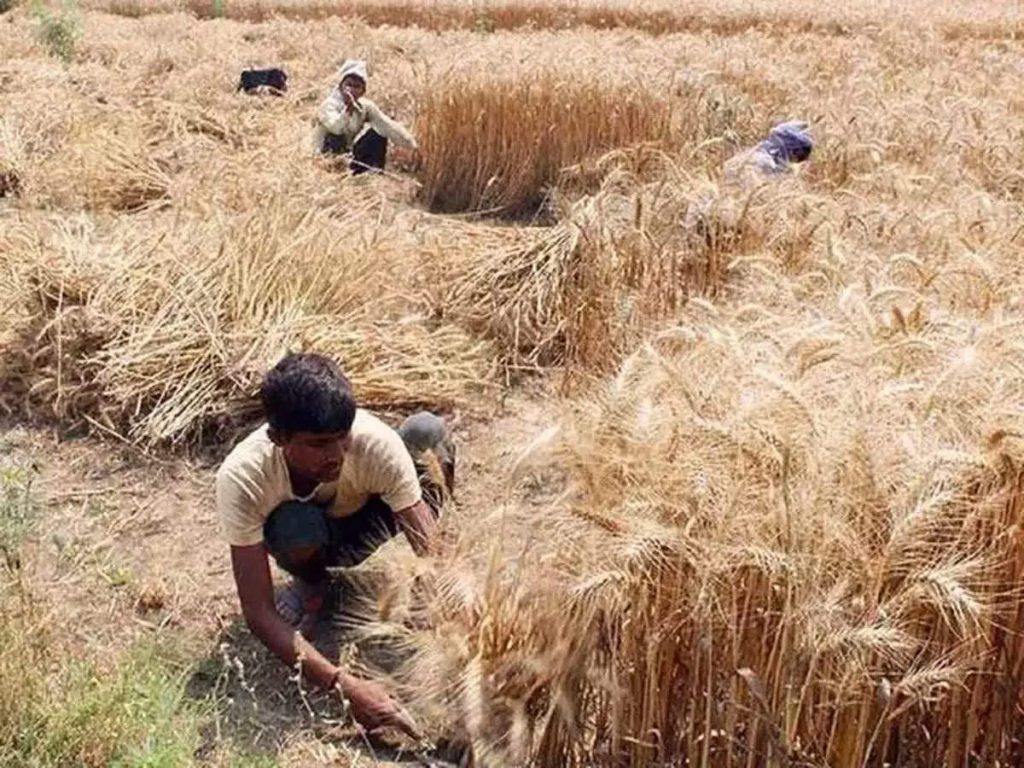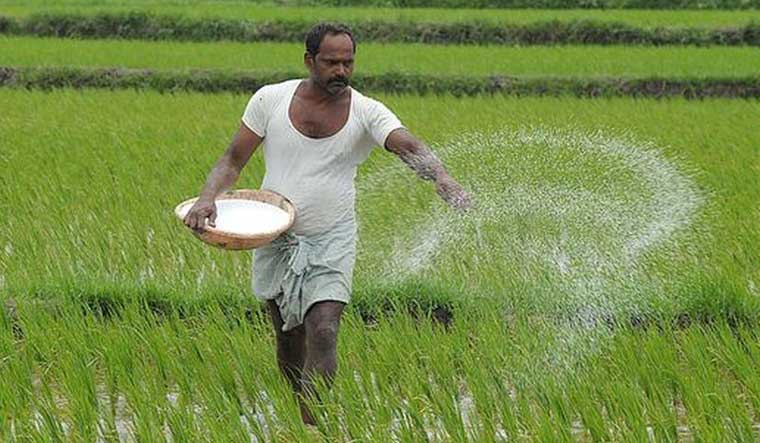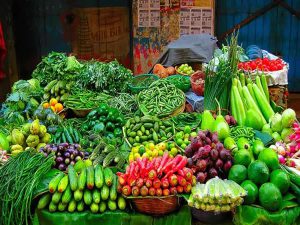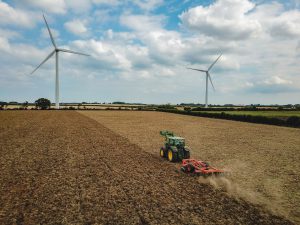
A delay in harvesting of wheat crops in the wake of novel coronavirus disease (COVID-19) pandemic could result in 25-30 per cent fall in seed production, according to state’s agricultural scientists.
The Bihar Agriculture University (BAU), Bhagalpur, planted breeder seeds in 26 hectares to produce 650 quintals of wheat.
Foundation seeds were planted in 94.5 ha land with the target production of 2,835 quintals. Certified seeds were grown in 42.8 ha, which were supposed to produce 1,284 quintals.
The ripened seed plants grown in farmland of the constituent colleges falling under the BAU and 21 Krishi Vigyan Kendra (KVK) are now ready to be harvested. However, shortage of labourers and the non-functional harvester machines amid COVID-19 outbreak has delayed harvesting.
There are also concerns over rains, which lashed some parts of the state in the last 24 hours, impacting the quality of seeds that may fall on the ground, scientists said.
“Delayed harvesting could result in 25-30 per cent decline in production of seeds we grew this year against our target,” RK Sohane, director (extension education), BAU told Down to Earth.
A fall in production of seeds will lead to a subsequent dip in wheat crop production next season, Sohane added.
It aims to transfer the well-tested technologies to farmers, livestock owners, rural youth, extension functionaries of state government and other personnel engaged in developmental and professional activities in agriculture and allied areas.
Directorate of Extension Education, BAU, is the nodal agency that plans, organises, coordinates, evaluates and monitors the extension education works of the university through agricultural colleges at Sabour (Bhagalpur district), Saharsa, Purnea and Dumraon (Buxar), Noorsarai (Nalanda) and Kishanganj, 13 research stations and 21 KVKs located in three agro-climatic zones of Bihar.
The directorate acts as a bridge between research scientists and farmers and other stakeholders involved in extension activities. The role is two-fold — transferring technologies from scientists to the ultimate users and finding problems on the field to be passed on to research divisions of the university.
Officials said the varieties grown by the university are high in demand by farmers across the state.
The prevailing scarcity of labourers and restrictions on drivers and technical staff has badly affected the harvest of Rabi crops. About 50 per cent Rabi crops have been harvested in the state so far, according to Bihar deputy director, agriculture, Sushil Kumar.
An agriculture department report stated that wheat crops were grown in 22.70 lakh ha land, maize crops in 5.5 lakh ha, oil seeds in 1.79 lakh ha and barley in 18,760 ha in the state in 2020.
“Although the harvesting has gained momentum, 50 per cent of standing crops are still in the field,” Kumar said. He added that rains have hit some parts of the state but the department is yet to get a report on the extent of damage.
According to villagers, government’s decision to place all harvester drivers and attendants under quarantine has badly affected the harvest.
About 640 drivers of harvesters and attendants were brought by farmers from Punjab and Haryana after the government issued formal passes to the latter.
Farmers said by the time drivers and helpers will complete the 14-day mandatory quarantine, their standing crops would be destroyed.
“We feel those making policies are not aware of the ground realities,” said Vinod Kumar Singh, a farmer form Bhabua.
“Our heart bleeds after seeing the grains falling on the ground due to winds. Nobody has time to look into our problems,” he added.
Reference Link: https://www.downtoearth.org.in/news/agriculture/covid-19-delayed-wheat-harvest-has-bihar-worried-over-seeds-70473




